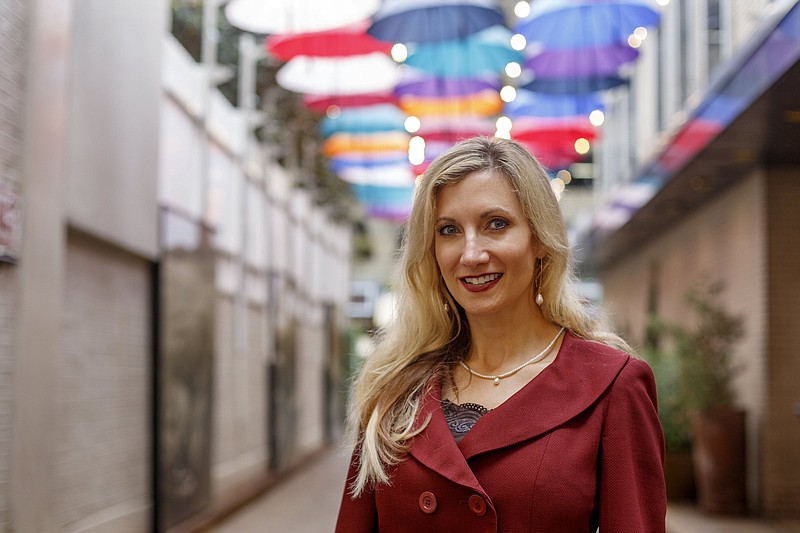From time to time in United States history, various loyalty oaths have been foisted on groups of Americans, demanding that they pledge they are or they aren't supportive of a particular idea or group.
As the Civil War wound down in 1864, for instance, a bill introduced in Congress said a majority of citizens of a Confederate state that sought readmission to the union would need to take an oath of loyalty to the United States. President Abraham Lincoln, who favored a less radical plan (but still loyalty oaths taken by 10% of voters of a state) pocket vetoed the bill.
Later, seeking to stem a rise in communism in the United States in the late 1940s and early 1950s, the federal government, state governments, unions and other professional organizations put in place rules that required employees or members to sign loyalty oaths.
Shortly after that era, political philosopher Howard B. White, discussing such oaths in the journal Social Research, said they might help those who put them in place but they were "useless." He also called them "destructive," "frivolous" and "fraught with pride and sorrow to so many people."
John F. Kennedy, then a young senator from Massachusetts, had similar thoughts in a letter to an education journal.
"The loyalty oath has no place in a program designed to encourage education," he wrote. "It is distasteful, humiliating.
"Those who are willing to sign," Kennedy added, "are not by that act proven to be either more loyal or more talented than those who do not."
We see similarities in these loyalty oaths and the pledge for racial equity that the Chattanooga Area Chamber of Commerce would like its members to sign.
Among other things, the pledge includes a commitment to "educate ourselves and share the history of systemic racism in Chattanooga and Hamilton County and the barriers that continue, so that as we recognize them, we can find new ways to overcome them," and a pledge to "improve the employment, training, advancement, support, and success of people of color in our workforces."
But signing a piece of paper won't make Chamber members any more interested in making the local economy more inclusive, won't close the gap between white and Black income in the city, and won't seed a single living-wage job.
And, we believe it would be difficult to be an active and involved member of the organization today without knowing something about Chattanooga's history, the disparities Blacks endured here under Jim Crow laws into the 1960s and the fact there are sectors - even when the economy is thrumming - where life doesn't seem to improve for Black residents.
Further, we don't believe Chamber members would be doing their jobs in their own businesses if they are not already looking at the city's economy holistically. When they work together to make opportunities for education, workforce training and better jobs available for people of all demographics, they're also improving things for themselves and for the city as a whole.
(READ MORE: Chattanooga business leaders voice support for racial equity pledge)
Christy Gillenwater, chief executive officer at the Chamber, told the Times Free Press last week that "systemic racism is like air pollution in communities in terms of the fact that these challenges exist in all communities."
Ironically, 52 years ago, Chattanooga had a dramatic problem with air pollution, and in 1969 was deemed by the Department of Health, Education and Welfare "the worst city in the nation for particulate air pollution." Instead of signing a piece of paper pledging to end pollution, citizens, government and manufacturers worked together and proposed air pollution control regulations. That same year, they approved an air pollution control ordinance and created the Air Pollution Control Board and Bureau to restrict pollution-causing activities in the county.
It took not a signature but people working together for what was best for area residents.
Gillenwater said in the coming weeks there will be a broader push for Chamber members to sign the racial equity pledge and that those who do will become the foundation of a group that works together to find ways to advance equity.
But what of those who don't? What of those who are knowledgeable of the city's past, who already foster inclusivity but who have concerns about signing a document that uses the controversial and often intentionally vague terms of "systemic racism" and "equity"?
Will they be tagged with some of the pejorative terms that are thrown around so frequently today and assigned to those unwilling to agree with the specific dictates of certain groups? Will they suffer the same fate as those who failed to sign loyalty oaths during Reconstruction following the Civil War or during the Red Scare following World War II?
No, we would hope the Chamber's loyalty would lie where former President Ronald Reagan thought it should.
"When I took the oath of office," he said, "I pledged loyalty to only one special interest group - 'We the people'."
